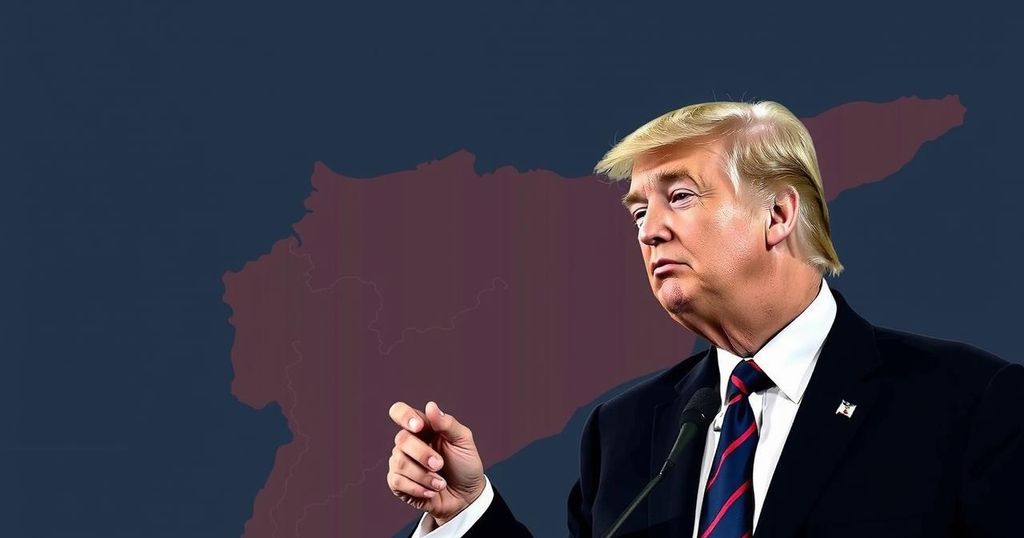World news
ASIA, CONFLICT, EUROPE, EUROPE/ASIA, FIGHTER JETS, IS, ISRAEL, KAMAL, KAMALA HARRIS, KENNEDY, KURDISTAN WORKERS ' PARTY, MIDDLE EAST, MILITARY, NEW MEE, NORTH AMERICA, PALESTINE, REFUGEE CRISIS, ROBERT F KENNEDY, ROBERT F KENNEDY JR, ROBERT F KENNEDY JR DONALD TRUMP, RUSSIA, SDF, SYRIA, SYRIAN DEMOCRATIC FORCES, TRUMP, TRUMP ADMINISTRATION, TUCKER CARLSON, TURKEY, UKRAINE, UNITED STATES, US, WAR
Ethan Kumar
0 Comments
Trump Advocates Withdrawal of Troops from Northern Syria to Avert Conflict
Robert F. Kennedy Jr. revealed that President Trump wishes to withdraw U.S. troops from northern Syria to avoid their involvement in potential conflicts between Turkey and Kurdish fighters. During discussions on Middle Eastern affairs, Trump highlighted fears that U.S. forces could become “cannon fodder” in escalating tensions, prompting his call for withdrawal. Trump’s re-election has stirred concerns regarding shifts in U.S. foreign policy in the region, particularly surrounding military support and involvement.
Robert F. Kennedy Jr. reported during a live interview with Tucker Carlson that President Donald Trump intends to withdraw U.S. troops from northern Syria to prevent them from becoming collateral damage in potential conflicts between Turkey and Kurdish forces. Kennedy revealed that Trump expressed his concerns regarding the geopolitical situation while drawing a map of the Middle East, indicating the U.S. military presence near the Turkish-Syrian border. He cited estimates of military deployments in Turkey and Syria but did not clarify whether these figures referred to Syrian governmental forces or the Kurdish factions. Kennedy recounted Trump’s view that U.S. troops could become “cannon fodder” in the event of hostilities, leading Trump to order their withdrawal with urgency. Following Trump’s recent re-election, there are apprehensions regarding changes to U.S. foreign policy, particularly concerning support for Ukraine and military engagement in the Middle East, amid ongoing tensions involving the Kurdish People’s Protection Units (YPG) and Turkish military operations.
The context surrounding the U.S. military presence in northern Syria involves complex relationships between various factions, including Kurdish forces and Turkey. Since 2014, the U.S. has allied with the Syrian Democratic Forces (SDF), primarily made up of the YPG, in their fight against the Islamic State (IS). The geopolitical situation in northern Syria remains contentious, with Turkey viewing the YPG as a terrorist organization due to its ties with the Kurdistan Workers’ Party (PKK). Moreover, the Syrian government has aspirations to regain control over its territory lost during the prolonged civil war, complicating matters further. The U.S. troop presence has been justified by some as necessary to monitor Iran’s influence in the region and stabilize the area following the defeat of IS.
In summary, Robert F. Kennedy Jr. highlighted President Trump’s decision to withdraw U.S. troops from northern Syria as a measure to prevent them from being caught in potential conflicts between Turkey and Kurdish forces. As Trump’s re-election raises concerns about significant shifts in U.S. foreign policy, the situation in northern Syria remains precarious due to long-standing tensions and the involvement of various military forces. The consequences of these decisions will likely impact regional stability and U.S. relations with both Turkey and Kurdish factions.
Original Source: www.middleeasteye.net




Post Comment